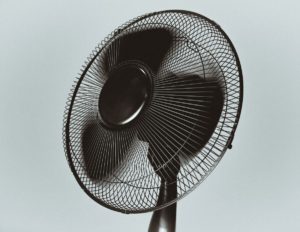Summer is a delightful time to go out, have fun, and even do outdoor activities. But with so much sweating, bedtime can become a real torment. And for those who don’t have air conditioning, the good old fan tends to save the day. But when it comes to helping the little ones sleep, what should we know? Can a fan harm children?
Can Children Sleep With the Fan On?
And the answer is yes! Parents can use a fan in the children’s room, as long as there is an appropriate distance and it is always directed at the wall or upwards, avoiding air blowing directly on the child. And a word of caution: it is necessary to be careful with children around fans, as they pose a danger for little fingers. Always keep the devices at a height children can’t reach!
In the case of ceiling fans, the option is to use the exhaust mode, as this way it is possible to control the air that is directed upwards and spread evenly throughout the room.
Parents must be careful not to overheat the child. They do not have the same thermal regulation as adults, and this becomes a risk, as a very hot body coming into contact with the cold air from the fan can cause a strong thermal impact1.
Fan Cleaning
It’s also important to highlight the care needed with the maintenance and hygiene of the fan. When on, the blades that circulate the air also scatter any dust or residue that is stuck on them.
Therefore, keeping the fan always clean will help prevent the onset of respiratory and allergic problems. Ceiling fans should be cleaned constantly, unlike air conditioning units, which should be sanitized every 6 months.
Respiratory problems in children can also happen in places that are very closed, which allow dirt to accumulate and can trigger severe allergic conditions like rhinitis, asthma, and sinusitis, causing significant pain and discomfort2.
Therefore, using a fan for children is allowed, as long as all precautions are followed. After all, children feel hot too and get restless when trying to sleep on warm nights. Make sure the room is well ventilated, keep the fan on at a distance that doesn’t create a strong wind impact on the child, and always at a safe height to prevent little fingers from getting hurt.
Even with the fan, never forget to keep your children well hydrated during hot weather3. Dressing them in lighter clothes can also help them sleep more peacefully. Hot and dry seasons increase cases of respiratory problems in children, so following certain precautions helps avoid some discomfort.

A tip for parents is to use a humidifier. This device helps keep the air moist and controls the dryness in the environment, preventing allergies, rhinitis, asthma, and keeping the nose from drying out and bleeding.
For those who don’t have a humidifier, a good tip is to use a damp towel at the bedroom door, on a chair, or near the child’s bed. The wet towel will help control the dryness of the environment, providing a more comfortable night.
Can Children Drink Cold Water?
In summer, nothing beats drinking cold water to cool off. But when it comes to children, parents often worry if it might be harmful, since we’ve always heard that cold water will inflame your throat. But is it true? Can children drink cold water?
And the answer is yes—children can and should cool off. It’s not cold water that will make them sick. The story that cold water causes colds or throat infections is a myth!
Of course, if the child already has a respiratory problem like the flu, a cold, or a cough, cold water should be avoided. But in general, it can be given as usual. If you prefer, you can mix a bit of cold and room temperature water to balance the temperature.
The worst that can happen if a child drinks cold water is a toothache, or, for those with sinusitis, forehead pain, which is common for those with the condition.
By the way, after a tonsillectomy, do you know what treatment is recommended to help with healing? Lots of ice cream and cold foods! So, consuming cold foods or drinks is not something that causes sore throats; only infectious agents can produce an infection.











